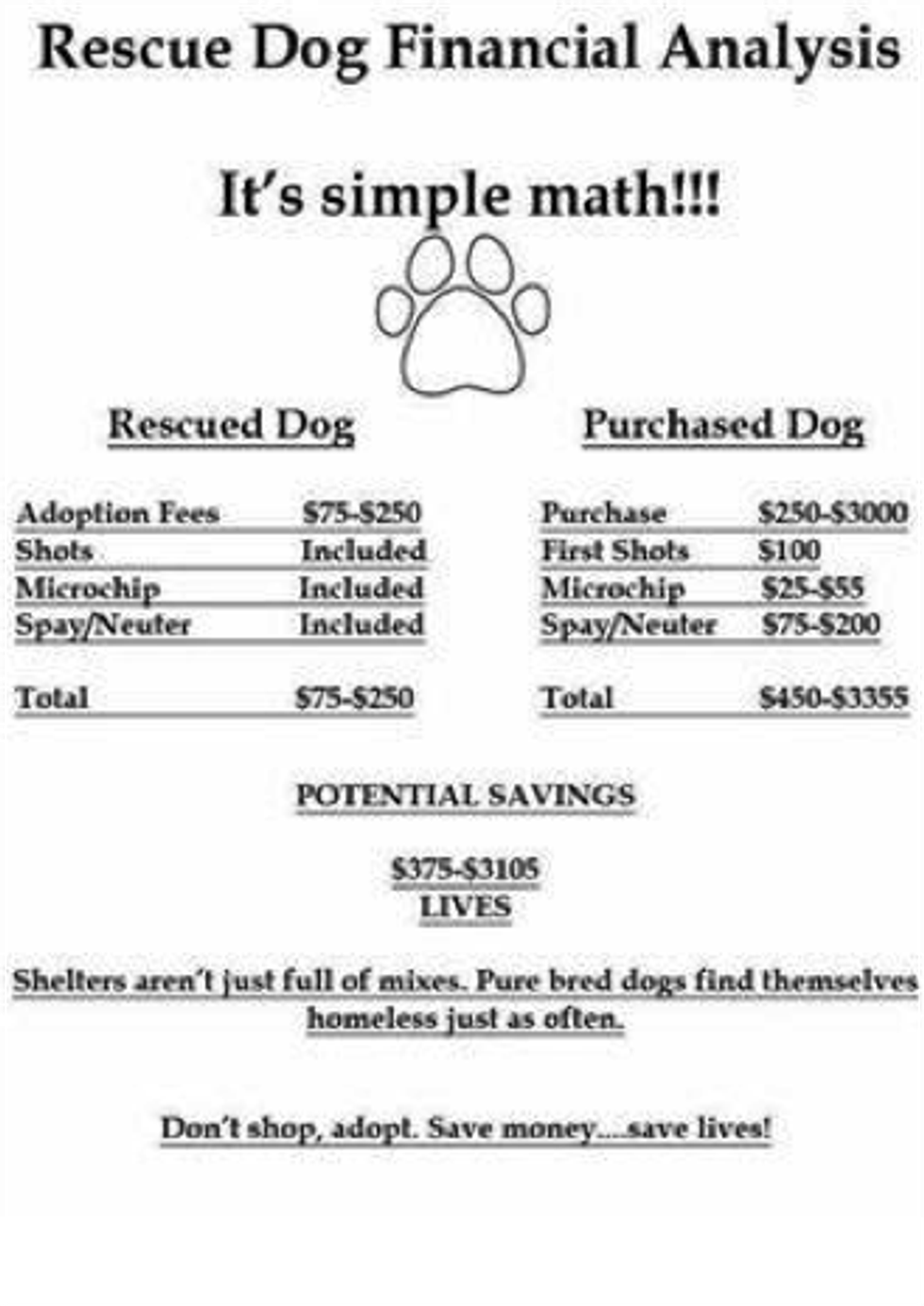"Saving one dog won't change the world, but surely for that one dog, the world will change forever."
Any time I hear of someone going to Petland, All About Puppies or “designer dog” stores and bringing home a puppy, I can’t help but cringe a little.
Why? Because those puppies are bred in puppy mills--large-scale, commercial facilities that force dogs to continuously pop out puppies, often in extremely cruel and inhumane conditions.
Imagine a large room with rows of cages, stacked on top of one another. These cages have no bottom pans, so fecal matter and more from the dogs living in the top cages will drop down into the cages below it. They’re metal, and dogs aren’t given even a towel to lie down on--often resulting in sores and cut-up paws. The cages are often too small for the dogs to stand and turn around in.
These dogs are underfed and often dehydrated. There is no air conditioning in the summer, and no heat in the winter. The dogs have never known love. Their paws have never touched grass. They’ve never been allowed outside to play, to stretch, to frolic and bark and play fetch.
Their sole purpose? To breed in order to support man’s greed.
According to Rolling Stone, the Humane Society of the United States estimates that there are about 10,000 puppy mills in the United States. And the United States Department of Agriculture only licenses a fraction of all kennels--about 2,500, to be exact.
The USDA began requiring online sellers to get federally licensed three years ago. Requirements to obtain a license include annual inspections and standards for care of the animals. But even the USDA has admitted that it is virtually impossible to monitor the Internet for breeders.
The same Rolling Stone article described the scene of a puppy mill from the perspective of a Human Society of the United States staff member. Here are a few of his descriptions, quoted verbatim:
“There were Yorkies and poodles and Maltese mixes, but their fur was so matted and excrement-mottled it was hard to tell which from which.”
“…dozens of puppies in dust-cloaked cages stood on their hind legs and bawled.”
“There were the parent dogs in desperate shape: blinded by cataracts and corneal ulcers; their jaws half-gone or missing entirely after their teeth had rotted away. Some were so feeble they couldn't stand erect; their paws were urine-scalded and their wrists were deformed from squatting on wire their entire lives.”
And this, everyone, is where your store-bought puppy is coming from. If you buy a puppy from a pet store, this scene is what you’re supporting.
Not only are you supporting a vicious cycle that will continue as long as people turn into the heart-eyes emoji when they see the puppy in the window, your new puppy is also extremely likely to be ridden with health issues.
According to HSUS, illness and disease are common in puppy mills due to the unsanitary, deplorable conditions the dogs are “cared for” in. Sick dogs are not removed from their breeding pools, HSUS says, and puppies are prone to hereditary disease. And puppies are removed from their mothers as early as six weeks old--too early to be independent.
Some common health problems among puppy-mill dogs: epilepsy, heart and kidney disease, blood disorders, respiratory disorders, eye problems, parvovirus, pneumonia, mange, endocrine disorders, hip dysplasia, intestinal parasites, the list goes on.
And these dogs are sold for upward of $500? Really?
If it’s a purebred dog you’re looking for, I get it. But before you go anywhere looking to buy a dog, I encourage you to take a walk through some of your local animal shelters and pet rescue organizations. They’re not all full of mixes--and even if they are, mixed-breed dogs are just as great! But puppies and purebreds often find their way to shelters, too, and many shelters are forced to euthanize animals in residence after a certain amount of time due to the sheer overcrowding problem. (By the way, if you adopt an animal you’ll be helping to reduce the overcrowding rather than contribute to it!)
If you really want to be sure of bloodlines, health history and more, please at least do your homework and choose a responsible, reputable breeder who cares for his or her animals properly and is licensed.
Whatever you do, please don’t support the puppy mills and pet stores that sell their puppies! All animals need and deserve a home, yes. But even if you buy from a pet store to “rescue” the puppy, another one will eventually fill its place, and so the cycle goes.
Finally, think about finances! Purchased dogs are often much more expensive than rescued dogs--I’ve seen puppies being sold for more than $3,500. Then you need to give them their first shots, microchip them and spay or neuter (again, another great way to help reduce overpopulation). Costs will add up.
Adopted animals often come at a lower fee, and most of the time their shots, microchips and spay/neuter surgeries are included in that price. Consider the graph below.
Whatever your choice ultimately ends up being, it’s my firm belief that it’s better to adopt than to shop. You’ll save money, but most importantly you’ll save lives. Every dog deserves a loving home, and every dog deserves to feel grass under its paws. The more dogs we adopt and the less we buy, the closer we’ll get to putting a stop to puppy mills.
























